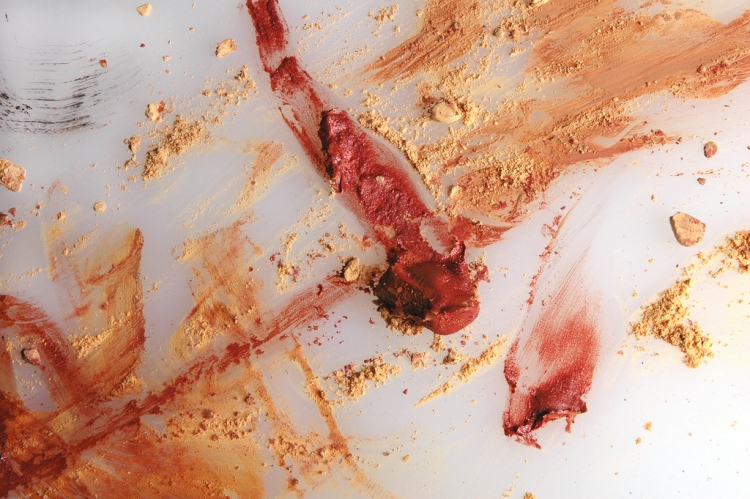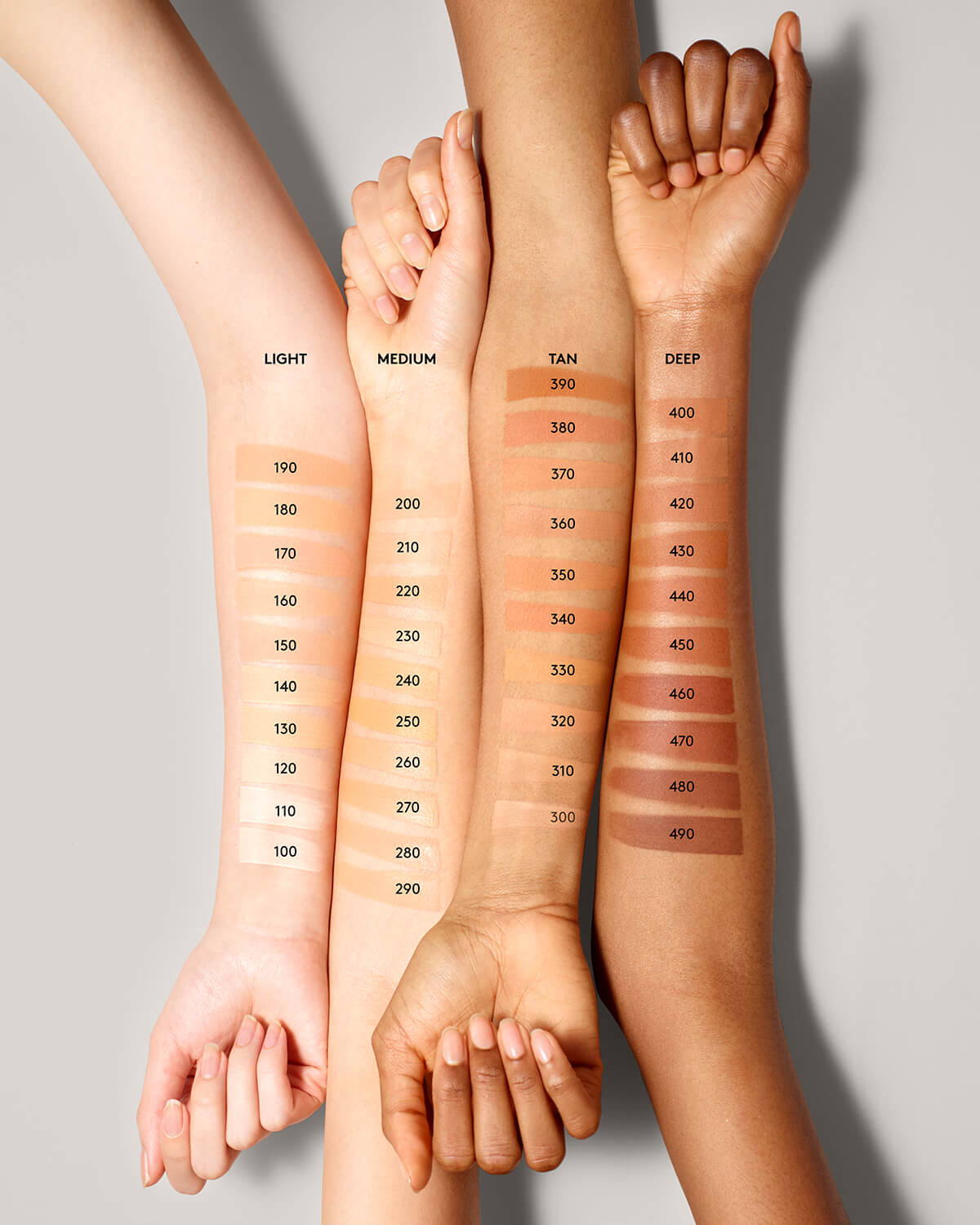Melanin Magic

Back in the late 1940s, the beauty industry started to produce more inclusive makeup, offering shades for women with darker skin tones. Unfortunately, the market became dominated by white-washing: whitening products and unrealistic beauty standards for women of color. As much as society dictates that times have changed in a progressive manner, black women continue to be left short-handed. The beauty industry has a long history of neglecting women of color as consumers, and over time our society appears to be stuck in a frustrating, continuous cycle of progress and regression.
Rihanna’s beauty line Fenty Beauty was launched during the New York Fashion Week of September 2017. Along with beautiful lip glosses, blushes and eyeshadows, 40 different shades of foundation were released that, finally, offered a range of shades for darker skin tones. These darker shades were sold out online and in stores in less than one week. Although it was not the first time that a beauty brand released a line of extensive colors, it was the first time that multiple undertones of shades for darker skins were given representation in the beauty industry.
Image Credit: Fenty Beauty
In an article for WWD, Stephanie D. Smith explains the predicament of African American women, writing that they "spend $7.5 billion annually on beauty products, but shell out 80 percent more money on cosmetics and twice as much on skin care products than the general market, according to the research. That difference comes as African-American women sample many more products to find the ones that are most effective on their skin." So why does it take so long for the beauty industry to realize that one shade does not fit all dark-skinned beauties?
The answer appears to lie with the Western beauty standards that have been developed over the last decades: fair skin, lighter eyes, blonder hair. In other words, beauty standards for darker skins are marginalized and overlooked, which lad to the beauty industry believing that representing more women of color would make their brand less glamorous. Nowadays, social media is changing the beauty industry, giving people a way to voice their demands and their discontent. Despite the voice given to consumers by social media, inequality in the beauty industry remains the same. On January 15th, Tarte Cosmetics launched a new line of foundation called Shape Tape. Unfortunately, the shade range of this new line is all but inclusive. The collection has 15 shades of foundation, and a mere three shades on the darker edge of the spectrum. Consumers took to Twitter to describe their disappointment in the brand's choice in foundation.
I’d like to introduce some names of the new tarte foundation shades:
White
Pale
Bleached eggshell
Intense white
Cracker
Snow
Extra porcelain
The opposite of black
Uncomfortably light pic.twitter.com/rhBje198wX— ALEXIS🍀 (@Alexislundqvist) 13 janvier 2018
The tarte shape tape foundation shade range is LAUGHABLE pic.twitter.com/l2LSUFdoSG
— MAKEUP PLUG (@glowkit) 13 janvier 2018
After the explosion of complaints online, Tarte Cosmetics issued an apology, stating that they "wanted to get the product out as fast as possible, & we made the decision to move forward before all the shades were ready to go." The real issue lies within the consumers who publicly shame Tarte yet continue to buy their products. It appears that even though Rihanna shocked consumers by setting the example for a more inclusive beauty industry, that same industry continues to regress back to Western beauty standards It's time for the beauty industry to be held accountable for their mistakes and be more inclusive, and it is up to us as consumers to stand up for equality. Making shades for all should not be an afterthought.








